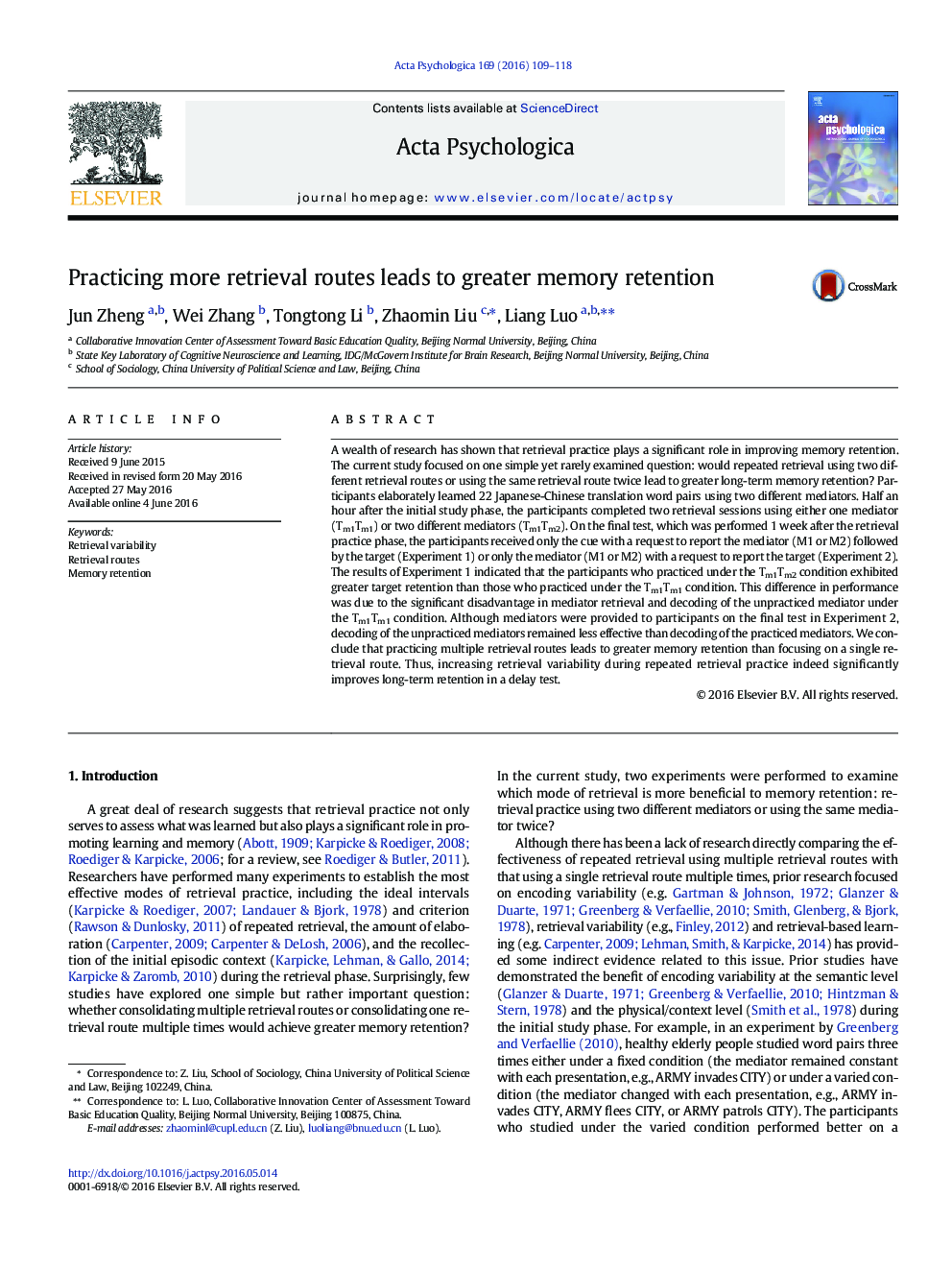| Article ID | Journal | Published Year | Pages | File Type |
|---|---|---|---|---|
| 919628 | Acta Psychologica | 2016 | 10 Pages |
•We examine the retrieval variability during retrieval practice phase.•Consolidating one route reduces the unpracticed mediator's retrieval and decoding.•Practicing more retrieval routes leads to greater memory retention.
A wealth of research has shown that retrieval practice plays a significant role in improving memory retention. The current study focused on one simple yet rarely examined question: would repeated retrieval using two different retrieval routes or using the same retrieval route twice lead to greater long-term memory retention? Participants elaborately learned 22 Japanese-Chinese translation word pairs using two different mediators. Half an hour after the initial study phase, the participants completed two retrieval sessions using either one mediator (Tm1Tm1) or two different mediators (Tm1Tm2). On the final test, which was performed 1 week after the retrieval practice phase, the participants received only the cue with a request to report the mediator (M1 or M2) followed by the target (Experiment 1) or only the mediator (M1 or M2) with a request to report the target (Experiment 2). The results of Experiment 1 indicated that the participants who practiced under the Tm1Tm2 condition exhibited greater target retention than those who practiced under the Tm1Tm1 condition. This difference in performance was due to the significant disadvantage in mediator retrieval and decoding of the unpracticed mediator under the Tm1Tm1 condition. Although mediators were provided to participants on the final test in Experiment 2, decoding of the unpracticed mediators remained less effective than decoding of the practiced mediators. We conclude that practicing multiple retrieval routes leads to greater memory retention than focusing on a single retrieval route. Thus, increasing retrieval variability during repeated retrieval practice indeed significantly improves long-term retention in a delay test.
Graphical abstractFigure optionsDownload full-size imageDownload as PowerPoint slide
